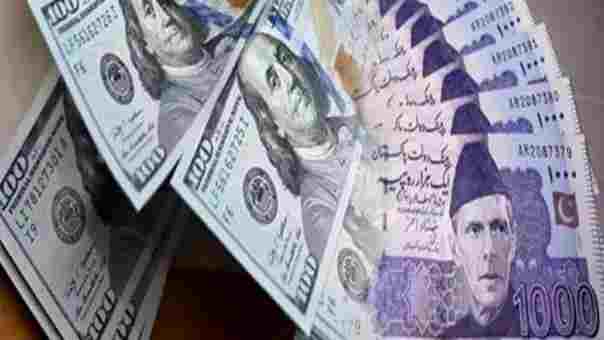Karachi, June 15, 2025 — The Pakistani rupee is expected to come under further pressure against the US dollar in the coming weeks, primarily due to rising foreign exchange demand from importers and corporates amid elevated geopolitical risks and energy prices.
On Friday, the rupee closed at 282.96 per dollar in the interbank market, weakening from Tuesday’s rate of 282.21. Currency dealers anticipate that the rupee will likely open on a weaker note when markets resume on Monday, especially as traders await the State Bank of Pakistan’s (SBP) monetary policy announcement scheduled for the same day.
Market consensus suggests the SBP will maintain its benchmark interest rate at 11%, as rising oil prices and regional uncertainty leave little room for easing. According to a market report by Tresmark, the rupee is expected to continue its weekly slide of 20 to 25 paisas, a trend that could intensify as Pakistan approaches its June 30 reserve buildup deadline.
“There is an implicit IMF reserve target of $16 billion for the SBP, and to meet this, the central bank is actively mopping up any surplus liquidity,” the report stated. It added that Pakistan hopes to achieve this target with the expected disbursement of $1.4 billion in climate financing and an anticipated $2 billion loan from Middle Eastern banks. At the same time, Pakistan is preparing to make a partial repayment on its $500 million Eurobond due in September.
The SBP, in its recent monetary policy statement, projected its reserves would reach $14 billion by end-June, supported by official inflows. However, reserve accumulation is only one side of the story. Tresmark noted that regional currencies have also depreciated — with the Indian rupee and Bangladeshi taka losing around 1.5% over the past month — placing additional pressure on the local currency.
Looking ahead, some relief may emerge in July, as the dollar index has weakened to 98.4 and global currencies gain strength. Additionally, Brent oil, which surged from $64 to $74, may stabilize, reducing import pressure. Pakistan is also exploring new dollar-denominated Eurobond and Panda bond issuances after a recent improvement in its credit ratings.
However, analysts caution that the wild card remains any escalation in the Iran-Israel conflict, which could trigger renewed volatility in oil markets and complicate Pakistan’s external financing plans.
